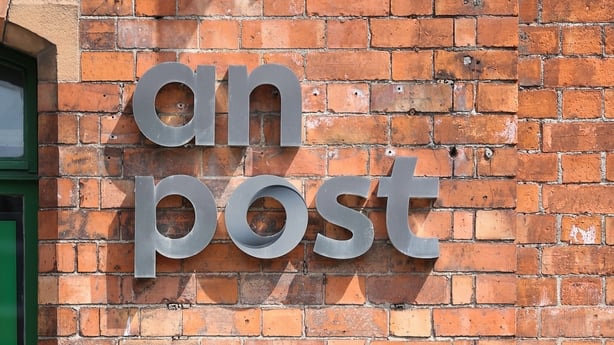The spiralling cost-of-living crisis is having a psychological impact on people, new research from An Post Money shows today.
The research - carried out in January and May - shows that financial planning for the future has taken a back seat with people now focusing instead on managing rising day-to-day living expenses.
It also reveals a sense of a lack of control as people try to keep afloat in the short-term but are stressed over their inability to prepare for their own future and the future of their children.
Unexpected outgoings such as medical bills and car or household item repairs are also an increasing cause of anxiety.
An Post said that financial anxiety has increased significantly across several areas with concerns around grocery bills seeing the largest rise as the area consumers are most concerned about.
Home energy remains the top financial concern facing people here despite energy credits and moving out of the colder winter period.
Accommodation costs also remain a key challenge facing the country with a surge in those worried about their rent and mortgages.
There is also frustration that incomes are not rising at the same rate as inflation, while others are concerned about how far their current or future pension will go if inflationary trends continue.
The research shows that 87% respondents expressed one or more financial concerns for the year ahead, with home heating and energy bills representing the largest financial concern and causing 65% of respondents to worry.
With grocery price inflation hitting a record high in April, 63% of consumers are worried about grocery bills in May, up from 57% in January. 18% said this is now their main financial concern, an increase of 38% since January.
45% of respondents are worried about accommodation costs - rent or mortgage payments - up from 37% in the January survey. 21% said this is their main financial concern, an increase of 17%.
Meanwhile, motor expenses are a cause of worry for 58% of respondents while 51% are concerned about insurance costs, up from 42% in January.

An Post also said that women record increased concerns over a wider range of areas since January, but especially around grocery food shopping bills, home heating/energy costs and medical/dental expenses.
It also said that women are significantly more likely to be concerned about groceries or medical bills than men, while both men and women recorded increased concern over both Insurance payments and mortgage/rent payments.
The research also shows that people living in Dublin are feeling the pressure of rent (33%) and mortgage payments (31%) plus credit card bills (23%) more than those living outside of Dublin.
People living in Munster (66%), Connacht and Ulster (65%) are feeling the pinch more in motor related costs than those living in Dublin (50%) or the rest of Leinster (55%).
The 35-54 year old age segment has recorded a significant increase in concerns across a multitude of areas, with mortgage payments a particular source of anxiety. This cohort is also more likely to show higher concern for credit card bills, compared to other age segments.
Meanwhile, 18-34 year olds are far more concerned about the cost of rent and transport costs, while those aged over 55 show the highest concern about home heating and energy costs and home insurance costs relative to younger cohorts, but significantly less concerned about rent and mortgage payments.
An Post Money said today it has launched a number of initiatives to help put financial power and control back into the hands of the public.
Its "Money Manager" smart budgeting tool is now available for free to everyone in Ireland, not just An Post Money customers.

The Money Manager budgeting tool allows users to securely link their current accounts and credit cards in one place so they can track their spending in real time.
Spending and budget alerts show users when they are approaching their personally-set limits, which allows them to adjust their spending accordingly.
Unusual transaction patterns and insights including splitting spending into various categories so money can be mapped and tracked on an ongoing basis is also available.
Debbie Byrne, Managing Director of An Post Retail, said the company is steadfast in its commitment to offering An Post Money customers a better digital banking experience to manage their everyday banking needs, enabling them to take control of their finances and build better financial habits.
"Money Manager allows users to securely link their current accounts and credit cards all in one place. They can track their spending in real time and set up spending and budget alerts to help them stay on track, while giving them a deeper understanding of their financial behaviour over time," she said.
"This new offering demonstrates our commitment to financial empowerment, helping consumers to make the most of their money, particularly as they try to navigate the rising cost of living," she added.
An Post Money is also partnering with Paul Merriman to offer consumers hands-on advice and real-life financial tips.
Paul Merriman said the research findings are stark yet unsurprising.
"As the purse strings tighten at home, attention turns to managing the day to day and making sure we keep the lights on and put food on the table," he said.
"However, I am concerned to see so many putting their long-term financial plans on the back burner because, what might seem like a low priority now will quickly become a big priority in five or ten years and this is something we are going to address over the coming weeks and months," he added.

